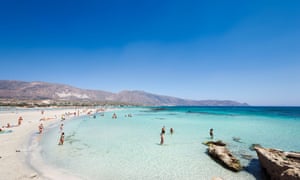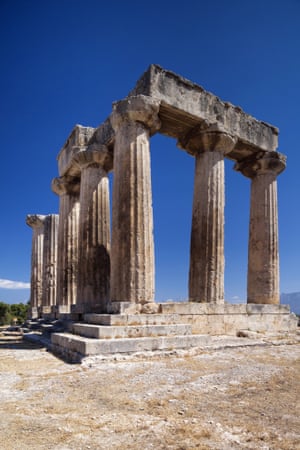Ključ za sretan svijet
“NAJSNAŽNIJA ličnost — ne samo u ova dva tisućljeća nego i u čitavoj ljudskoj povijesti — bio je Isus iz Nazareta”, pisalo je u časopisu Time. Kad je Isus bio na Zemlji, tisuće iskrenih osoba jasno je moglo zapaziti ne samo veličinu njega kao osobe već i njegovu zainteresiranost za druge. Stoga i ne čudi što su ga htjeli postaviti za kralja (Ivan 6:10, 14, 15). No kao što je bilo i spomenuto u prethodnom članku, Isus se nije želio miješati u politiku.
NA ISUSOV stav utjecala su najmanje tri faktora: mišljenje njegovog Oca o pravu ljudi na samoodređenje i vladanje nad drugim ljudima; vlastita svjesnost da se moćne nevidljive sile suprotstavljaju čak i najboljim nastojanjima ljudi koji su na vlasti; činjenica da je Bog naumio uspostaviti nebesku vladavinu nad čitavom Zemljom. Dok budemo detaljnije razmatrali te tri točke, vidjet ćemo zašto nastojanja ljudi da stvore bolji svijet nisu urodila plodom. Saznat ćemo i kako će biti ostvaren novi svijet.
Mogu li ljudi sami uspješno vladati?
Kad je Bog stvorio ljude, dao im je vlast nad životinjskim svijetom (1. Mojsijeva 1:26). Ali vlast nad ljudima ostala je u Božjim rukama. Prvi muškarac i žena trebali su svoju podložnost Bogu potvrditi time da se poslušno uzdrže od jedenja ploda s određenog drveta, “drveta od znanja dobra i zla” (1. Mojsijeva 2:17). Nažalost, Adam i Eva zloupotrijebili su svoju slobodnu volju i pokazali neposlušnost prema Bogu. Uzimanje zabranjenog ploda nije bilo samo krađa. Predstavljalo je pobunu protiv Božje suverenosti. U fusnoti za 1. Mojsijevu 2:17 uJeruzalemskoj Bibliji stoji da su Adam i Eva posegli za “moralnom autonomijom, čime čovjek osporava svoj položaj stvorenja (...). Prvi je grijeh nasrtaj na vrhovno Božje gospodstvo.”
Bog je zbog ozbiljnih moralnih pitanja koja su se pojavila dopustio Adamu, Evi i njihovim potomcima da sami izaberu kako će živjeti, pa su oni postavili vlastita mjerila za ispravno i neispravno (Psalam 147:19, 20; Rimljanima 2:14). U biti, otada ljudi eksperimentiraju sa samoodređenjem. Je li taj eksperiment uspio? Gledajući tisućama godina unatrag, možemo reći da nije! U Propovjedniku 8:9stoji: “Vlada čovjek nad čovjekom na zlo njegovo.” Ta žalosna povijesna činjenica o ljudskim vladavinama potvrđuje istinitost Jeremije 10:23: “Znam, Jehova, da put čovječji nije u njegovoj vlasti niti je čovjeku koji hodi u vlasti da upravlja koracima svojim.” Povijest dokazuje da ljudi nemaju sposobnost uspješno vladati neovisno od svog Stvoritelja.
Isus se s tim potpuno slagao. Neovisnost od Boga za njega je bila hula na Boga. “Ništa ne činim sam od sebe”, rekao je. “Uvijek činim ono što je njemu [Bogu] ugodno” (Ivan 4:34; 8:28, 29). Stoga bez Božjeg odobrenja nije htio ni pomisliti na to da od ljudi prihvati kraljevsku vlast. Ipak, to ne znači da Isus nije želio pomoći svojim bližnjima. Naprotiv, dao je sve od sebe kako bi im pomogao da budu sretni tada i u budućnosti. Čak je i svoj život dao za čovječanstvo (Matej 5:3-11; 7:24-27; Ivan 3:16). Ali Isus je znao da “svemu ima vrijeme”, pa i tome da Bog potvrdi svoju suverenost nad čovječanstvom (Propovjednik 3:1; Matej 24:14, 21, 22, 36-39). No sjeti se da su se naši praroditelji u Edenu podvrgli volji zlog duhovnog stvorenja koje je govorilo preko zmije. Tako dolazimo do drugog razloga zašto se Isus klonio politike.
Tajni vladar svijeta
Iz Biblije doznajemo da je Sotona ponudio Isusu “sva kraljevstva svijeta i njihovu slavu” u zamjenu za jedan čin obožavanja (Matej 4:8-10). U biti, Isus je dobio ponudu da vlada svijetom — ali pod uvjetima koje je postavio Đavo. Isus nije podlegao tom iskušenju. No da li se stvarno radilo o iskušenju? Da li je Sotona doista mogao ponuditi nešto tako grandiozno? Da, mogao je, jer je sam Isus Đavla nazvao ‘vladarom svijeta’, a apostol Pavao ‘bogom ovog sustava stvari’ (Ivan 14:30; 2. Korinćanima 4:4; Efežanima 6:12).
Dakako, Isus je znao da Đavo nije iskreno zainteresiran za dobrobit čovječanstva. Nazvao ga je ‘ubojicom ljudi’ te ‘ocem laži i svega što je lažno’ (Ivan 8:44, The Amplified Bible). Razumljivo je da svijet koji “leži u vlasti” takvog zlog duha ne može biti istinski sretan (1. Ivanova 5:19). No Đavo neće imati tu vlast zauvijek. Isus, koji je sada moćno duhovno stvorenje, uskoro će ukloniti Sotonu i u potpunosti onemogućiti njegov utjecaj (Hebrejima 2:14; Otkrivenje 20:1-3).
Sotona je svjestan da se dani njegove vlasti nad svijetom bliže kraju. Stoga on očajnički ulaže svu svoju snagu kako bi ljudski rod nepopravljivo iskvario, upravo kao što je to učinio prije potopa Noinog vremena (1. Mojsijeva 6:1-5; Juda 6). “Jao zemlji i moru”, kaže Otkrivenje 12:12, “jer je Đavo sišao k vama, s velikim gnjevom, znajući da ima malo vremena.” Proročanstva u Bibliji i svjetski događaji pokazuju da živimo gotovo na isteku to “malo vremena” (2. Timoteju 3:1-5). Blizu je olakšanje od svega toga.
Vladavina koja će omogućiti sreću
Treći razlog zašto se Isus klonio politike jest taj što je znao da će u određeno vrijeme Bog uspostaviti nebesku vladavinu koja će vladati nad Zemljom. Biblija tu vladavinu naziva Božje Kraljevstvo, a ono je bilo glavna tema Isusovog učenja (Luka 4:43; Otkrivenje 11:15). Isus je poučavao svoje učenike da se mole da to Kraljevstvo dođe, jer će se samo pod vlašću tog Kraljevstva ‘Božja volja vršiti kako na nebu tako i na Zemlji’ (Matej 6:9, 10). No možda se pitaš: ‘Ako će to Kraljevstvo vladati nad čitavom Zemljom, što će se dogoditi s ljudskim vladavinama?’
Odgovor nalazimo u Danijelu 2:44: “U vrijeme tih kraljeva [koji vladaju na kraju sadašnjeg sustava] Bog će nebeski podignuti kraljevstvo koje se dovijeka neće rasuti, i to se kraljevstvo neće ostaviti drugom narodu; ono će satrti i ukinuti sva ta [ljudska] kraljevstva, a samo će stajati dovijeka.” Zašto će Božje Kraljevstvo morati “satrti” zemaljske vladavine? Zato što one u ljudima neprestano pothranjuju duh samoodređenja kojim se prkosi Bogu, a koji je još u edenskom vrtu promicao Sotona. Ne samo da oni koji pothranjuju taj duh rade protiv interesa čovječanstva nego se i suprotstavljaju Stvoritelju (Psalam 2:6-12; Otkrivenje 16:14, 16). Stoga se moramo upitati: ‘Jesmo li za Božju vladavinu ili protiv nje?’
Čiju ćeš suverenost priznati?
Da bi ljudi mogli donijeti informiranu odluku u pogledu vladavine, Isus je svojim učenicima dao zadatak da prije nego što dođe kraj sadašnjeg sustava propovijedaju ‘dobru vijest o kraljevstvu po cijeloj nastanjenoj zemlji za svjedočanstvo svim narodima’ (Matej 24:14). Tko je danas širom svijeta poznat po propovijedanju o Božjem Kraljevstvu? Jehovini svjedoci. Ustvari, na naslovnoj stranici ovog časopisa dugo vremena stoje riječi “objavljuje Jehovino Kraljevstvo”. Danas šest milijuna Jehovinih svjedoka u preko 230 zemalja pomaže ljudima da steknu točnu spoznaju o tom Kraljevstvu.*
Blagoslovi za podanike Kraljevstva
Isus je uvijek postupao u skladu s Božjom voljom. Stoga, umjesto da izabere neovisnost i da pokuša političkim sredstvima popraviti ili poboljšati postojeći sustav stvari, on je naporno radio kako bi unaprijedio interese Božjeg Kraljevstva, jedinog rješenja za svjetske probleme. Zbog svoje je lojalnosti za nagradu dobio slavno prijestolje na nebu kao Kralj upravo tog Kraljevstva. Kakve li divne nagrade za podložnost Bogu! (Danijel 7:13, 14).
I milijuni ljudi koji danas oponašaju Isusa tako što Božje Kraljevstvo stavljaju na prvo mjesto u svom životu i podlažu se Božjoj volji raduju se velikom daru — divnom izgledu da budu zemaljski podanici Božjeg Kraljevstva (Matej 6:33). Pod tom vladavinom punom ljubavi oni će biti dovedeni do ljudskog savršenstva s izgledom na vječni život (Otkrivenje 21:3, 4). U 1. Ivanovoj 2:17 piše: “Svijet prolazi i njegova želja, no onaj tko vrši Božju volju ostaje zauvijek.” Kad Sotona i njegovi sljedbenici budu uklonjeni i cijela Zemlja bude pretvorena u raj u kojem neće biti razjedinjavajućeg nacionalizma, pokvarenog trgovačkog sustava i krive religije, kakva li će radost biti zauvijek živjeti na Zemlji! (Psalam 37:29; 72:16).
Da, Božje Kraljevstvo pravi je ključ za istinski sretan svijet, a poruka kojom se ono objavljuje prikladno se naziva dobra vijest. Ako to već prije nisi učinio, zašto ne bi poslušao tu dobru vijest koja ti se nudi sljedeći put kad te posjete Jehovini svjedoci?
[Bilješka]
Zastupajući Božje Kraljevstvo, Jehovini svjedoci ne miješaju se u politiku niti potiču na pobunu protiv svjetovnih vlasti, čak ni u zemljama gdje je njihovo djelovanje zabranjeno ili ih se progoni (Titu 3:1). Umjesto toga, oni se trude dati pozitivni, duhovni, nepolitični doprinos društvu, kako su to činili Isus i njegovi učenici u prvom stoljeću. Svjedoci pomažu pravdoljubivim ljudima u različitim društvenim sredinama da usvoje korisne biblijske vrijednosti, kao što su briga za obitelj, ljubav, poštenje, moralna čistoća i dobre radne navike. Oni prvenstveno nastoje poučiti ljude kako slijediti biblijska načela i gledati na Božje Kraljevstvo kao na pravu nadu čovječanstva.
[Slike na stranici 5]
Povijest dokazuje da ljudi ne mogu uspješno vladati neovisno od Boga
[Slika na stranici 5]
Budući da Sotona vlada sadašnjim ‘sustavom stvari’, mogao je Isusu ponuditi “sva kraljevstva svijeta”
[Slike na stranici 7]
Isus je naučavao da će pod Božjim Kraljevstvom svijet postati predivno mjesto za život

